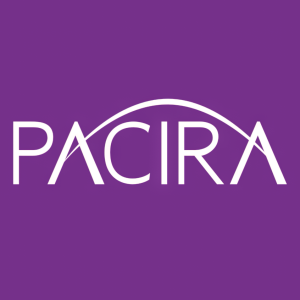Pacira BioSciences Announces Two-Year Efficacy Data Following a Single Local Administration of PCRX-201 in Patients with Mild to Severe Osteoarthritis of the Knee
Rhea-AI Summary
Pacira BioSciences (Nasdaq: PCRX) has announced promising two-year efficacy data for its gene therapy candidate PCRX-201 in treating knee osteoarthritis. The study, presented at the 2025 OARSI World Congress, demonstrated sustained improvements in knee pain, stiffness, and function across all severity levels following a single injection.
The Phase 1 trial involved 72 patients aged 30-80, with two cohorts receiving different treatment protocols. The corticosteroid-pretreated cohort showed superior results with 48-65% pain reduction and 53-72% stiffness reduction, compared to 41-58% pain and 33-53% stiffness reductions in the non-pretreated group.
No serious treatment-related adverse events were reported. The most common side effect was joint swelling, occurring in 36% of pretreated patients versus 61% of non-pretreated patients. PCRX-201 received FDA's RMAT designation in March 2024 and EMA's ATMP designation in May 2023. A Phase 2 study (ASCEND) is currently underway.
Positive
- Strong efficacy data with up to 65% pain reduction and 72% stiffness reduction over two years
- First-ever gene therapy to receive FDA's RMAT designation for osteoarthritis
- No serious treatment-related adverse events reported
- Phase 2 study already underway following promising Phase 1 results
Negative
- High incidence of joint swelling (61%) in non-pretreated patients
- Treatment requires corticosteroid pretreatment for optimal results
News Market Reaction
On the day this news was published, PCRX gained 5.52%, reflecting a notable positive market reaction.
Data tracked by StockTitan Argus on the day of publication.
-- PCRX-201 demonstrated two years of clinically meaningful improvements in pain, stiffness and function across all structural severity subgroups, including advanced disease --
-- Study Findings Presented at 2025 OARSI World Congress--
BRISBANE, Calif., April 28, 2025 (GLOBE NEWSWIRE) -- Pacira BioSciences, Inc. (Nasdaq: PCRX), the industry leader in its commitment to deliver innovative, non-opioid pain therapies to transform the lives of patients, today announced new data demonstrating its locally administered gene therapy candidate, PCRX-201 (enekinragene inzadenovec), provided sustained improvements in knee pain, stiffness, and function for up to two years following a single local administration in patients with mild, moderate, as well as severe osteoarthritis of the knee. The data was presented during a poster session at the 2025 Osteoarthritis Research Society International (OARSI) World Congress in Incheon, South Korea, on Friday, April 25, and Saturday, April 26.
“These results highlight the promise of PCRX-201 to reshape the treatment landscape for knee osteoarthritis by delivering long-lasting, inflammation-targeted relief with a single injection—regardless of the severity of the condition,” said Ali Mobasheri, Professor of Musculoskeletal Biology at the University of Oulu in Finland and Chief Researcher at the State Research Institute Centre for Innovative Medicine in Lithuania, who was lead investigator and primary author on the poster presentation. “The power of PCRX-201 is that it targets much more than the symptoms of osteoarthritis, it addresses the root cause by targeting the inflammatory endotype and chronic inflammation at the cellular level with a locally administered genetic medicine that that mimics the body’s natural inflammatory response. There is a clear need for innovative, disease-modifying treatments for osteoarthritis as current options are based on decades-old mechanisms that only provide three to six months of relief.”
PCRX-201 features an innovative design based on the company’s proprietary high-capacity adenovirus, or HCAd, gene therapy vector platform. It is injected locally into the knee joint to boost cellular production of interleukin-1 receptor antagonist (IL-1Ra), and block interleukin-1 pathway activation to improve chronic inflammation, pain, and function. PCRX-201’s unique design also features an inducible promoter to mimic the body’s natural response to inflammation by “turning on” the expression of IL-1Ra when inflammation is present in the joint and turning off expression once inflammation is quelled.
Study Details
The open-label, phase 1 trial investigated the efficacy of PCRX-201 administered by ultrasound-guided intraarticular injection in 72 patients aged 30 to 80, stratified by structural severity of osteoarthritis of the knee. The research included participants with osteoarthritis of the knee graded at 2, 3 and 4 on the Kellgren-Lawrence (K/L) scale, a method for evaluating the severity of osteoarthritis on a scale of 0-4.
Participants were divided into two cohorts. The first cohort was administered one injection of PCRX-201 at a low, middle or high dosage. The second cohort received concurrent pretreatment with an intraarticular corticosteroid (methylprednisolone 40 mg) to improve tolerability and gene transfer.
Improvements in pain, stiffness and function from baseline were shown across both cohorts at all three doses and severity levels over the full 104-week study period; they were assessed using the Western Ontario and McMaster Universities Osteoarthritis Index pain score (WOMAC-A), the stiffness score (WOMAC-B), and Knee Injury and Osteoarthritis Outcome Score (KOOS).
Patients in the corticosteroid -pretreated cohort achieved greater benefits (
No serious treatment-emergent adverse events (TEAEs) related to the treatment or procedure were reported regardless of corticosteroid pretreatment or dose level administered. Treatment-related joint effusions (swelling) were the most common AE, occurring in
“This study reinforces the transformative potential of locally administered gene therapy to deliver long-lasting relief for the millions of people living with knee osteoarthritis, including the most severe subgroup—a condition that can severely limit mobility, quality of life, and overall well-being,” said Frank D. Lee, chief executive officer of Pacira BioSciences. “As we advance our Phase 2 study, PCRX-201 represents a key milestone on our path to becoming an innovative biopharmaceutical company and delivering on our 5x30 strategy for growth and value creation.”
In March 2024, PCRX-201 became the first-ever gene therapy product candidate in osteoarthritis to receive Regenerative Medicine Advanced Therapy (RMAT) designation from the U.S. Food and Drug Administration (FDA).
RMAT designation provides the benefits of intensive FDA guidance on efficient drug development, including the ability for early interactions with the FDA to discuss surrogate or intermediate endpoints, potential ways to support accelerated approval and satisfy post-approval requirements, potential priority review of the Biologics License Application (BLA), and other opportunities to expedite development and review. PCRX-201 was also granted Advanced Therapy Medicinal Products (ATMP) designation by the European Medicines Agency in May 2023.
Given the promising Phase 1 results, dosing is underway in a Phase 2 study of PCRX-201 (the ASCEND study) for the treatment of osteoarthritis of the knee. To learn more about PCRX-201 and the company’s clinical development program, please visit the investor events page of the company’s investor website.
About PCRX-201 (enekinragene inzadenovec)
PCRX-201 (enekinragene inzadenovec) features an innovative design based on the company’s proprietary high-capacity adenovirus vector platform. It is currently being studied in the fundamental, underlying chronic inflammatory processes that contribute to “wear and tear” over time in osteoarthritis of the knee, a condition that affects more than 14 million individuals in the U.S. today.
In November 2024, Pacira reported promising data from a large Phase 1 study in which PCRX-201 provided sustained improvements in knee pain, stiffness, and function through two years following local administration, with a well-tolerated safety profile. PCRX-201 has received Regenerative Medicine Advanced Therapy (RMAT) designation from the U.S. Food and Drug Administration and Advanced Therapy Medicinal Products (ATMP) designation from the European Medicines Agency. PCRX-201 is the first gene therapy to achieve these clinical results and earn these regulatory designations in osteoarthritis of the knee – a testament to its promise and potential.
About Pacira
Pacira delivers innovative, non-opioid pain therapies to transform the lives of patients. Pacira has three commercial-stage non-opioid treatments: EXPAREL® (bupivacaine liposome injectable suspension), a long-acting local analgesic currently approved for infiltration, fascial plane block, and as an interscalene brachial plexus nerve block, an adductor canal nerve block, and a sciatic nerve block in the popliteal fossa for postsurgical pain management; ZILRETTA® (triamcinolone acetonide extended-release injectable suspension), an extended-release, intra-articular injection indicated for the management of osteoarthritis knee pain; and iovera®º, a novel, handheld device for delivering immediate, long-acting, drug-free pain control using precise, controlled doses of cold temperature to a targeted nerve. The Company is also advancing the development of PCRX-201 (enekinragene inzadenovec), a novel, locally administered gene therapy with the potential to treat large prevalent diseases like osteoarthritis. To learn more about Pacira, visit www.pacira.com.
Forward-Looking Statements
Any statements in this press release about Pacira’s future expectations, plans, trends, outlook, projections and prospects, and other statements containing the words “believes,” “anticipates,” “plans,” “estimates,” “expects,” “intends,” “may,” “will,” “would,” “could,” “can” and similar expressions, constitute forward-looking statements within the meaning of Section 21E of the Securities Exchange Act of 1934, as amended (the “Exchange Act”), and the Private Securities Litigation Reform Act of 1995, including, without limitation, statements related to: the settlement described herein, ‘5x30’, our growth and business strategy; our future outlook, our intellectual property and patent terms, our growth and future operating results and trends, our strategy, plans, objectives, expectations (financial or otherwise) and intentions, future financial results and growth potential, including our plans with respect to the repayment of our indebtedness, anticipated product portfolio, development programs, development of products, strategic alliances and other statements that are not historical facts. For this purpose, any statement that is not a statement of historical fact should be considered a forward-looking statement. We cannot assure you that our estimates, assumptions and expectations will prove to have been correct. Actual results may differ materially from those indicated by such forward-looking statements as a result of various important factors, including risks relating to, among others: the failure to realize the anticipated benefits and synergies from the acquisition of GQ Bio Therapeutics GmbH; risks associated with acquisitions, such as the risk that the acquired businesses will not be integrated successfully, that such integration may be more difficult, time-consuming or costly than expected or that the expected benefits of the transaction will not occur; our manufacturing and supply chain, global and U.S. economic conditions (including inflation and rising interest rates), and our business, including our revenues, financial condition, cash flow and results of operations; the success of our sales and manufacturing efforts in support of the commercialization of EXPAREL, ZILRETTA and iovera°; the rate and degree of market acceptance of EXPAREL, ZILRETTA and iovera°; the size and growth of the potential markets for EXPAREL, ZILRETTA and iovera° and our ability to serve those markets; our plans to expand the use of EXPAREL, ZILRETTA and iovera° to additional indications and opportunities, and the timing and success of any related clinical trials for EXPAREL, ZILRETTA and iovera°; the commercial success of EXPAREL, ZILRETTA and iovera°; the related timing and success of U.S. Food and Drug Administration supplemental New Drug Applications and premarket notification 510(k)s; the related timing and success of European Medicines Agency Marketing Authorization Applications; our plans to evaluate, develop and pursue additional product candidates utilizing our proprietary multivesicular liposome (“pMVL”) drug delivery technology; the approval of the commercialization of our products in other jurisdictions; clinical trials in support of an existing or potential pMVL-based product; our commercialization and marketing capabilities; our ability to successfully complete capital projects; the outcome of any litigation; the recoverability of our deferred tax assets; assumptions associated with contingent consideration payments; assumptions used for estimated future cash flows associated with determining the fair value of the Company; the anticipated funding or benefits of our share repurchase program; and factors discussed in the “Risk Factors” of our most recent Annual Report on Form 10-K and in other filings that we periodically make with the Securities and Exchange Commission (the “SEC”). In addition, the forward-looking statements included in this press release represent our views as of the date of this press release. Important factors could cause actual results to differ materially from those indicated or implied by forward-looking statements, and as such we anticipate that subsequent events and developments will cause our views to change. Except as required by applicable law, we undertake no intention or obligation to update or revise any forward-looking statements, whether as a result of new information, future events or otherwise, and readers should not rely on these forward-looking statements as representing our views as of any date subsequent to the date of this press release.
These forward-looking statements involve known and unknown risks, uncertainties and other factors that may cause our actual results, levels of activity, performance or achievements to differ materially from those expressed or implied by these statements. These factors include the matters discussed and referenced in the “Risk Factors” of our most recent Annual Report on Form 10-K and in other filings that we periodically make with the SEC.

Investor Contact: Susan Mesco, (973) 451-4030 susan.mesco@pacira.com Media Contact: Sara Marino, (973) 370-5430 sara.marino@pacira.com







